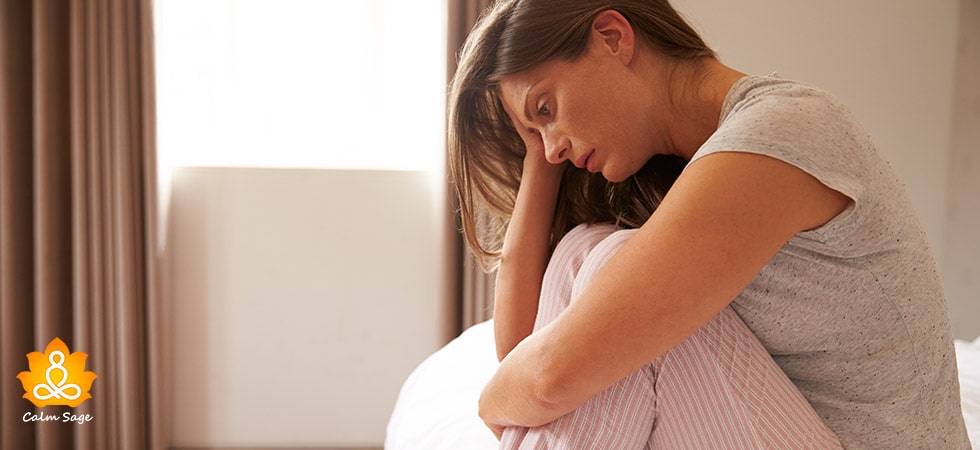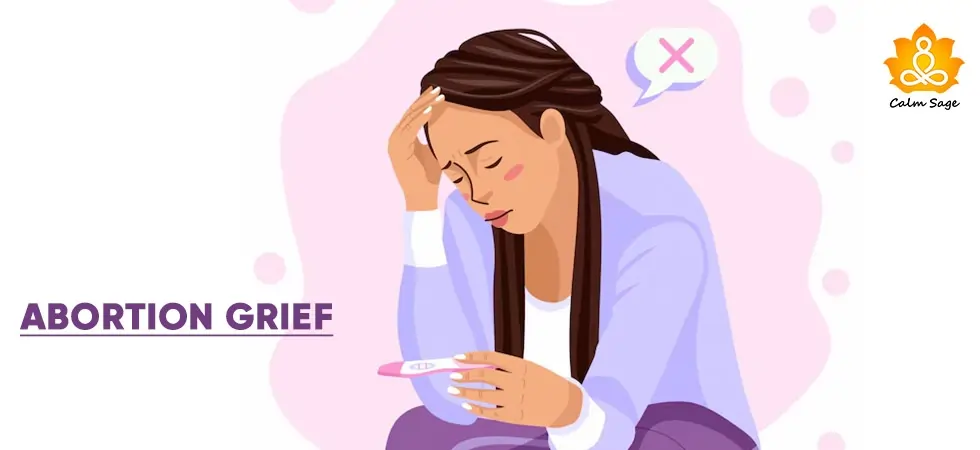The Depression Stage of Grief: What You Need to Know

“Grief never ends, but it changes. It’s a passage, not a place to stay.”
Living with grief is not an easy feat – it’s a rollercoaster of emotions, thoughts, and feelings that can make finding peace and even happiness like chasing a rainbow. As we move through the stages of grief, we come across different experiences that can only complicate the grief after a loss.
One of the most challenging stages of grief to move through is the depression stage of grief – where the weight of our sorrow feels unbearable. It’s OK to feel sad and even hopeless after a loss, but when it comes to depression, it’s a little more than just being sad.
Depression is a profound and persistent feeling of emptiness, hopelessness, and disinterest in life that can influence your thoughts, emotions, behaviors, and even your physical health.
Today, we’re exploring the depression stage of grief, what happens during this stage, why we feel depressed when grieving, and how to cope with the distressing feelings and move on to the next stage of grief.
The Depression Stage of Grief
The depression stage of grief is the phase where the reality of your loss has begun to sink in, truly. It’s when the initial shock and denial have faded, and the pain has become more pronounced. This is the stage where you grapple with a profound sense of sadness, longing, and despair. Depression during grief can feel like being trapped in a fog of sorrow, where everything is too heavy to carry.
During this stage of grief, you may experience a myriad of emotions, but overwhelming sadness takes the spotlight. You might even feel emotions, such as;
- Extreme loneliness
- A deep sense of helplessness
- Vulnerability
- Despair, and
- A disinterest in everyday activities
In the throes of grief-related depression, your thoughts might become more negative and disturbed. You might experience;
- Dwelling on the memories of the lost loved one
- Flashbacks of conversations
- Feelings of guilt and regret
- Existential questions such as “What is the meaning of my life?”, etc.
The most common physical symptoms that can occur during grief-related depression can include;
- Fatigue
- Insomnia
- Poor concentration on daily tasks, and
- Changes in appetite
Examples…
Depression during grief can manifest in different ways. Some people might withdraw from social conversations, and lose interest in activities they enjoyed before the loss, whereas others may struggle to concentrate on themselves or struggle to make simple decisions.
Why Does Depression Happen During Grief?
Depression in grief comes from the profound sense of loss and the disruption it causes in your life. The pain of loss and separation from the loved one – coupled with the uncertainty of the future – can overwhelm your coping mechanisms, even if you’re used to such experiences.
Grief has a way of triggering a reassessment of your self-identity, life’s purpose, and personal beliefs, all of which can worsen the feelings of confusion and despair that accompany loss.
While experiencing depression in grief is natural, it can become troublesome when it impacts your ability to function or when it continues for a long time. If your feelings of hopelessness and disinterest persist, then self-harm thoughts can be triggered. In such cases, it’s important to seek immediate help from a professional.
Grief has no fixed timeline or structure, and this applies to the depression stage of grief too. It can vary from person to person, how they move through the stage. For some, the depression caused by grief can last for weeks while for others, it can last for months or even years.
To move on from the depression stage of grief is the most challenging ordeal. It’s a time of severe emotional pain and vulnerability, where every day can feel like an uphill (and never-ending) battle with one’s will. With the right support, compassion, and time, grief and depression can be overcome.
Coping With Depression in Grief
While it can be hard to move through the depression stage of grief, a few strategies can help you ease the emotional burden. Here are some ways you can cope with grief and grief-induced depression;
1. Seek Support
The first thing you can do if you feel depression settling in your bones is to reach out to your loved ones. This includes your friends, family, or even a counselor who can offer you support, understanding, and comfort during these difficult times.
2. Express Your Feelings
Make sure you give yourself time to grieve, feel, and express your emotions. You can do it in different ways such as through writing, art, or even joining a support group. Having healthy outlets to express feelings and process emotions can help you ease some of the pain.
3. Take Care of Yourself
Another way to cope with grief and loss can be to take care of your needs – emotional and physical. This begins by taking care of yourself. You can prioritize your rest and nutrition while engaging in activities that bring you a semblance of comfort during your grief.
4. Know That It’s Normal
You need to understand that feeling sad and depressed during grief is normal and OK. There is nothing wrong with you if you feel saddened. Be patient with yourself, show yourself some kindness, acknowledge that healing takes time, and know that it’s OK to have bad days and good days.
5. Find Meaning in Your Life
Another thing you can do to cope with depression during grief is to look for ways you can honor your loved one and their memories. You can start by finding a new meaning in your life and experiences. You can find comfort and solace in creating rituals, volunteering, or expressive arts.
Wrap Up…
The depression stage of grief is an intense experience as you learn to live and cope with sorrow and despair. It’s a time when the loss and the pain of the loss feel overwhelming, and moving forward seems almost next to impossible. Yet, this is also a time when you take a look back and reassess the depth of your love and connection with the one you’ve lost.
By embracing whatever you feel, seeking support from loved ones, and taking care of your needs, you can slowly – but eventually – learn to move through this seemingly eternal darkness and find the light at the end of the tunnel, once more.
Just keep in mind that you’re not alone in your grieving, and asking for help and support is OK, not a sign of weakness.
I hope this article helped you understand what is the depression stage of grief, what happens during this phase, and how you can cope with depression in grief. Let us know your thoughts in the comments below.
Take Care and Stay Strong!




















